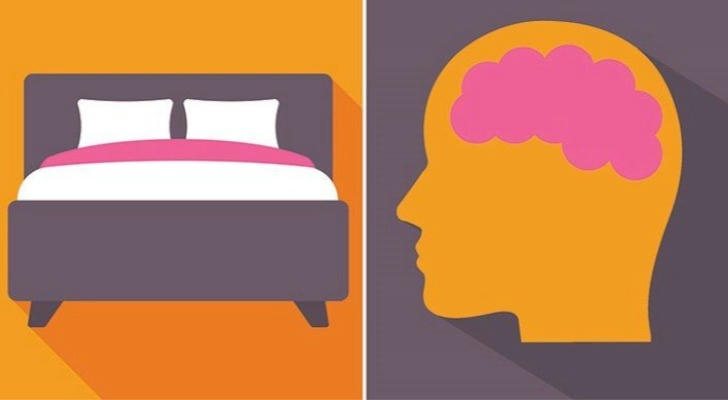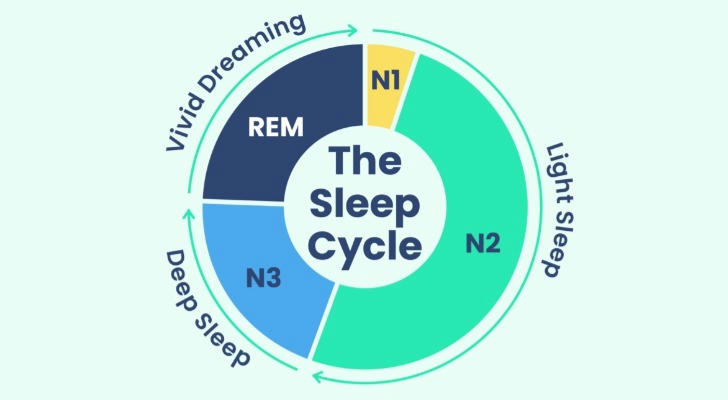The Impact of Sleep on Memory
Sleep is not just a time for rest; it plays a crucial role in how we think, learn, and remember things. Numerous studies have shown a strong connection between sleep and memory. In this article, we will explore how sleep affects memory formation and retention, the consequences of sleep deprivation, and tips for improving sleep to enhance memory.

Understanding Sleep
To understand how sleep affects memory, we first need to know what sleep is. Sleep consists of different stages, mainly deep sleep and rapid eye movement(REM) sleep. Deep sleep is when our body rests and repairs itself. During REM sleep, our brain is very active, and this is when most dreaming occurs. Each stage of sleep has its own unique characteristics and benefits for the brain.Sleep serves many important functions for our body. It helps us recover from daily activities. It also supports our immune system and keeps our heart healthy. For the brain, sleep is vital for processing information and making connections. Without enough sleep, our brain cannot function properly.

The Connection Between Sleep and Memory
Memory formation involves three main processes: encoding, storage, and retrieval. Encoding is how we take in information, storage is how we keep it, and retrieval is how we recall it later.

Sleep plays a significant role in these processes, especially in the transition from short-term to long-term memory.When we learn something new, our brain needs time to process that information. Sleep helps this process by strengthening memories. During sleep, our brain organizes and connects the information we’ve learned, making it easier to recall later.
For instance, research from MIT found that students who got enough sleep after studying performed significantly better on tests than those who stayed up late. This highlights the importance of sleep for academic success.In addition to students, professionals also benefit from adequate sleep. A study involving doctors showed that those who had a good night's sleep before a shift performed better in patient care and made fewer errors. This demonstrates that sleep is crucial not only for students but also for anyone who needs to perform well mentally.
The Effects of Sleep Deprivation on Memory
Lack of sleep can have serious consequences for our memory. When we do not get enough sleep, our ability to think clearly and remember things decreases. Research shows that sleep deprivation can impair various cognitive functions, including memory encoding, storage, and retrieval. For instance, a study conducted by the University of Pennsylvania found that participants who were restricted to just 4-5 hours of sleep per night for two weeks performed as poorly on cognitive tests as those who had been awake for 48 hours straight. This highlights the severe impact of sleep deprivation on cognitive function, including memory.

Specific studies have demonstrated the negative effects of sleep deprivation on memory recall. One study published in the journal Sleep found that individuals who missed a night of sleep had a 50% reduction in their ability to remember new information the following day. Another study from Singapore National University compared three groups: a control group with normal sleep, a partial sleep deprivation group that slept only five hours for seven consecutive days, and a total sleep deprivation group that stayed awake for 24 hours. The results showed that the group with total sleep deprivation experienced cognitive impairments comparable to individuals with a blood alcohol concentration of 0.1%.
These findings emphasize that sleep deprivation not only affects short-term memory but can also lead to long-term memory issues. For example, chronic sleep deprivation has been linked to an increase in proteins associated with cognitive decline, similar to those found in Alzheimer's disease.
Improving Sleep for Better Memory
From the above, we know that if we want a good memory, we can’t do without adequate sleep.Here are some tips for improving sleep quality:
1.Create a Sleep-Friendly Environment
Your bedroom should be a comfortable place for sleep. Keep the room dark, quiet, and cool. Consider using blackout curtains or a sleep mask to block out light. Earplugs or white noise machines can help reduce noise disturbances.
2.Stick to a Regular Sleep Schedule
Going to bed and waking up at the same time every day helps regulate your body’s internal clock. Try to maintain a consistent sleep schedule, even on weekends. This routine can help you fall asleep faster and wake up feeling refreshed.
3.Practice Relaxation Techniques
Before bedtime, engage in relaxing activities to help calm your mind. Techniques like deep breathing, meditation, or gentle yoga can prepare your body for sleep. Avoid stimulating activities, such as watching TV or using electronic devices, at least an hour before bed.
4.Limit Stimulants
Caffeine and nicotine can interfere with your ability to fall asleep. Try to avoid these substances in the afternoon and evening. Alcohol may help you fall asleep initially, but it can disrupt your sleep later in the night.
5.Consider Napping
Short naps can be beneficial for memory retention. Research has shown that a brief nap can enhance learning and memory recall, especially when learning new information.
Conclusion

In summary, sleep plays a vital role in memory formation and retention. Getting enough quality sleep is essential for maintaining good memory function. Lack of sleep can lead to memory problems and difficulty concentrating. By following simple tips to improve sleep, such as creating a comfortable environment and sticking to a regular sleep schedule, we can enhance our memory and overall well-being.Prioritizing sleep is one of the best things we can do for our brains. So, let’s make sleep a priority and enjoy the benefits it brings to our memory and daily lives. Remember, a well-rested mind is a sharp mind!
